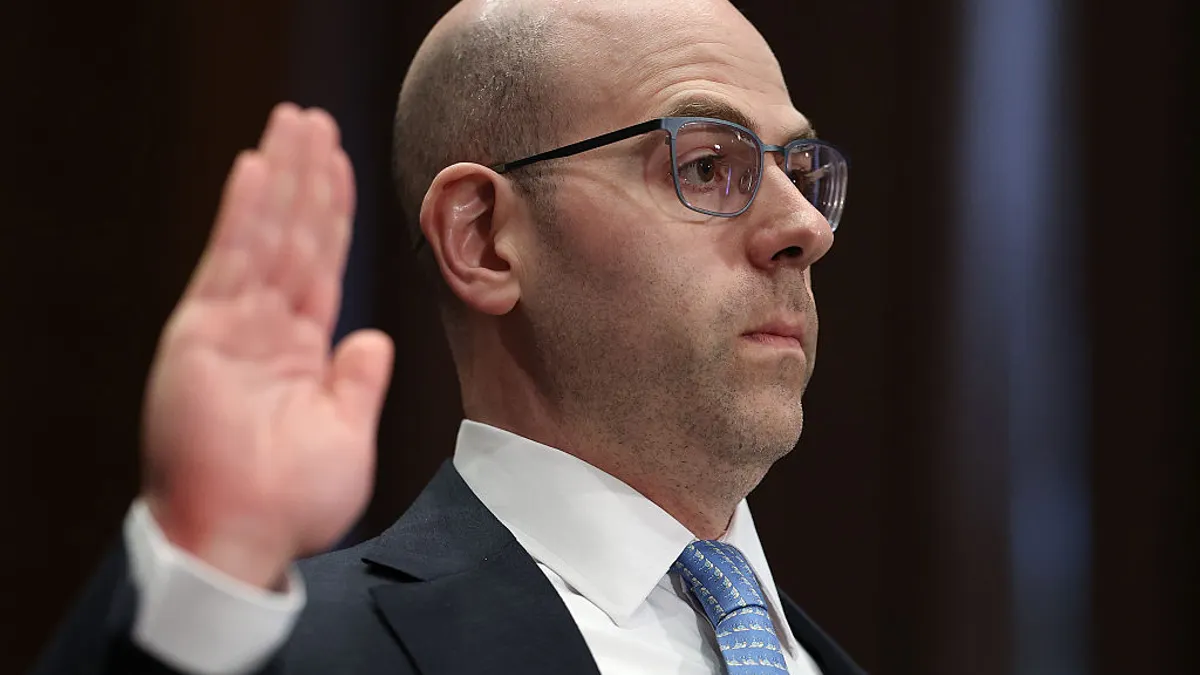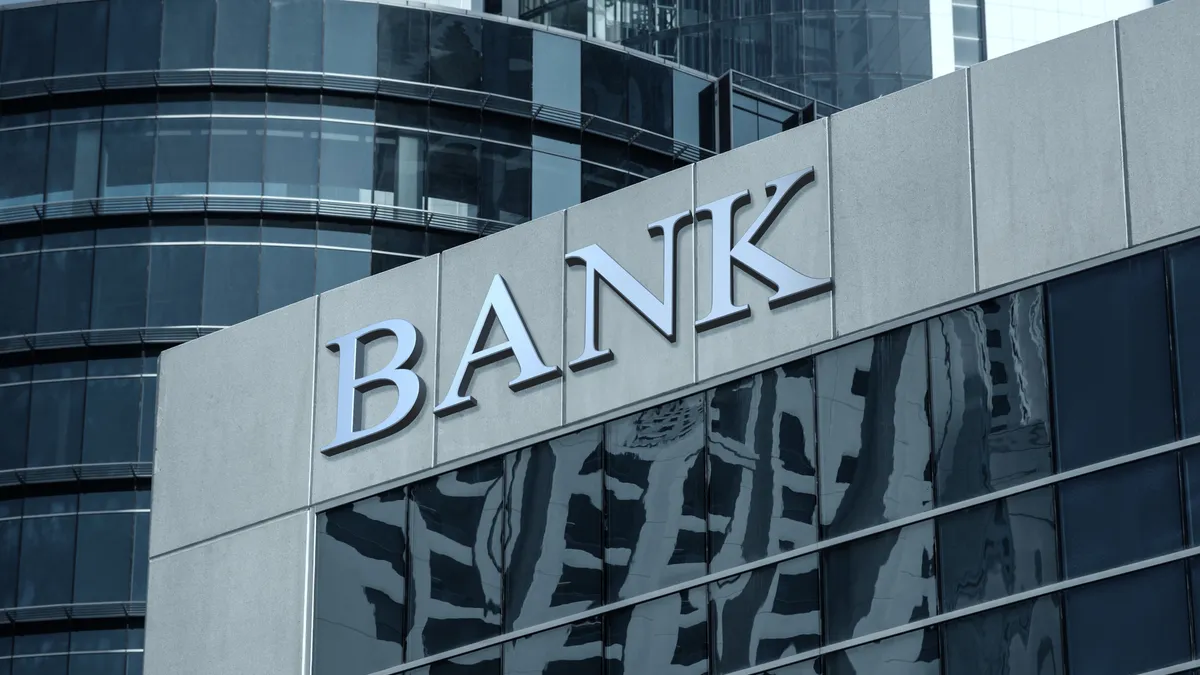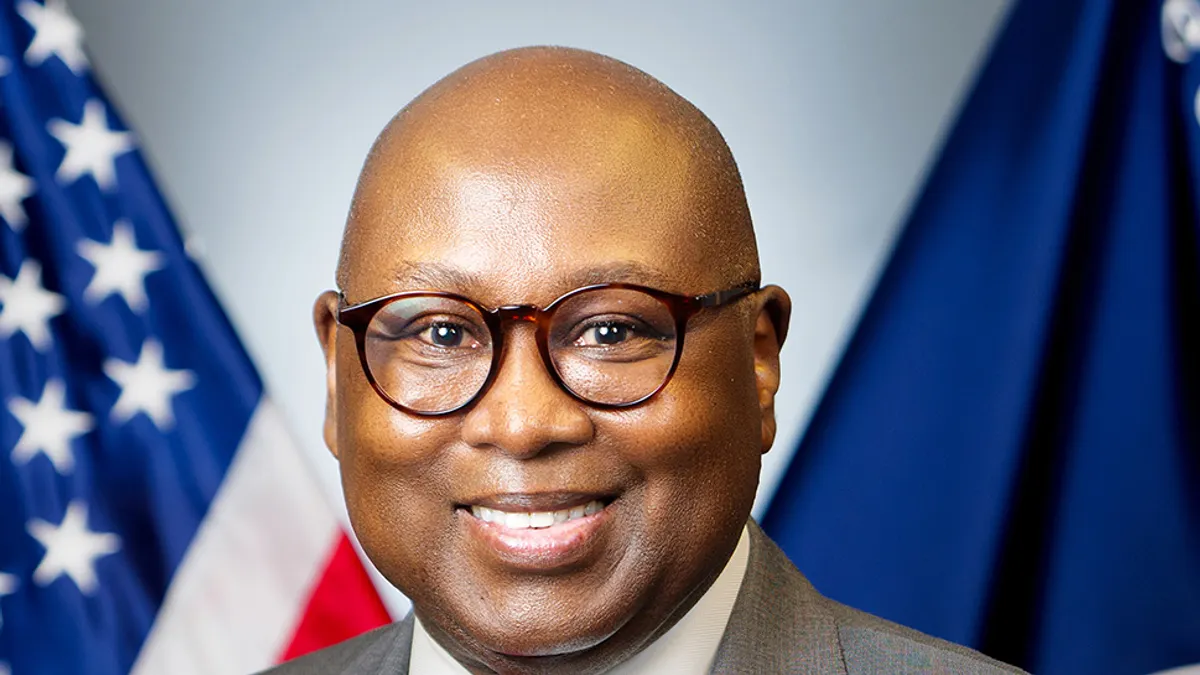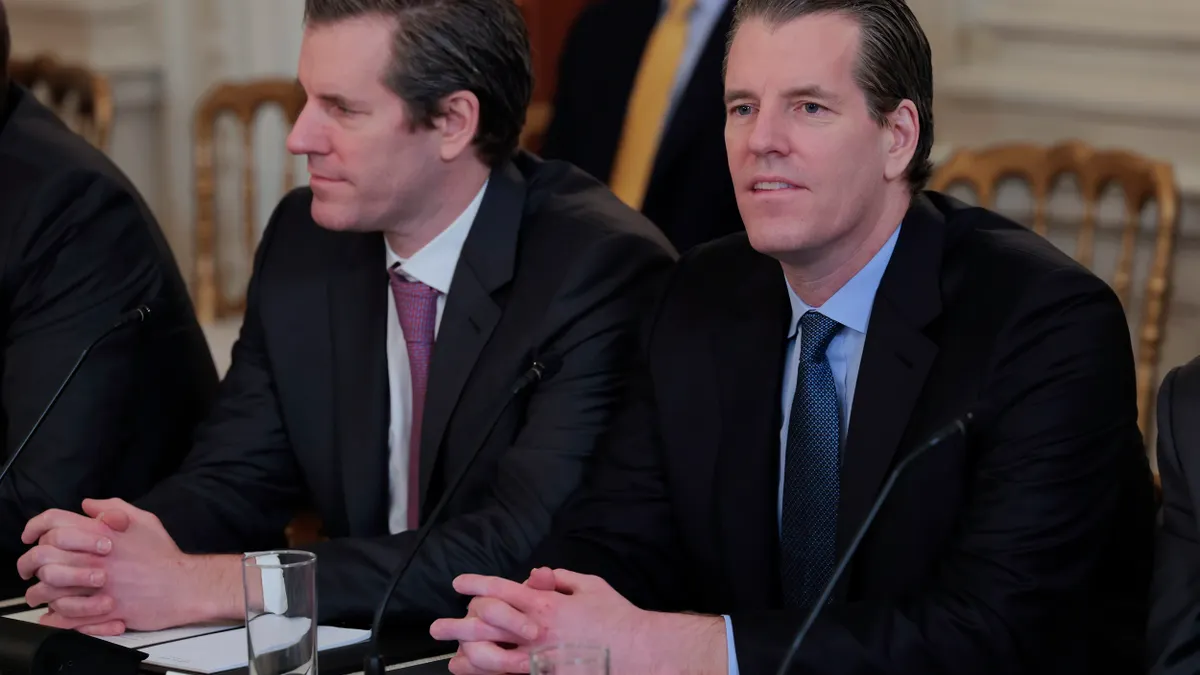The Senate Banking Committee voted 13-11 on Wednesday, along party lines, to approve the nomination of Stephen Miran, chair of the White House’s Council of Economic Advisers, to serve on the Federal Reserve Board of Governors.
That would tee up a vote Monday by the full Senate to potentially confirm Miran, according to Bloomberg, which cited a person familiar with the planning.
If he’s confirmed, that could put him in place ahead of Tuesday’s meeting of the Federal Open Market Committee, which sets interest rates.
At issue for some senators who voted against the nomination is Miran’s assertion that he would opt to take an unpaid leave of absence from his White House job while serving at the Fed.
“This arrangement would not serve the best interest of the American people,” Sen. Jack Reed of Rhode Island and seven fellow Democrats wrote Friday in a letter to Miran. “It is ludicrous to contend that you could exercise independent judgment regarding monetary policy and financial regulation [while still holding a White House role].”
The Fed term Miran would serve out, if confirmed, expires Jan. 31. But Miran could continue to serve at the central bank until his successor on the Fed board is confirmed.
Reed pointed to a 2023 social media post that Miran himself wrote, regarding former Fed Vice Chair for Supervision Lael Brainard and now-Chicago Fed President Austan Goolsbee. Brainard left the Fed to serve as director of the White House’s National Economic Council; Goolsbee previously held Miran’s job – CEA chair – for the Obama administration.
“Neither Brainard nor Goolsbee – nor anyone else on the planet – can go from highly political operative to politically neutral just because he or she gets a promotion,” Miran wrote. “That's just not how human beings work.”
The Democrats asked Miran to commit to resigning from his White House job if confirmed to the Fed board. But the senators also “question how you arrived at the conclusion that retaining both roles would be permissible.”
They asked Miran to provide an analysis “showing both the legal basis for this conclusion and how this arrangement would preserve the independence of the Federal Reserve.”
"We requested in writing that dual opinion, and he refused to give it to us, so we are still completely uncertain as to his legal status," Reed said Wednesday, according to American Banker.
“Based on legal guidance, if confirmed, Stephen Miran may take an unpaid leave of absence from his CEA position,” White House spokesman Kush Desai, said in a statement seen by Reuters.
In a statement before Wednesday’s committee vote, Sen. Elizabeth Warren, D-MA, called Miran’s potential dual role “an obvious Trump loyalty test.”
“He knows that every vote he takes determines whether he can go back to his White House job,” Warren said. “That is not independence – that is servitude.”
Miran’s confirmation vote will be a loyalty test for Republican senators, too, Warren added.
“Every senator who spoke at Dr. Miran’s confirmation hearing said they supported Fed independence,” Warren said. “If it’s true that you believe in independence, then you should vote no.”
Warren said voting one’s beliefs isn’t easy, citing her own vote against Jerome Powell’s renomination as Fed chair.
“But we were not sent here to serve the President. We were sent here to serve the people of our states,” Warren said. “And if we refuse to do that today, we are sentencing those same constituents to years of potentially higher prices and higher unemployment.”
Ahead of the vote, Warren published Miran’s answers to 82 questions the senator had for him – including insight on the resignation matter. Miran said he would “reevaluate” his “decision to take an unpaid leave of absence” from his White House job if his Fed term were to extend beyond January.
Miran added that he would not “maintain access” to his White House email while working for the Fed, but would continue to consult with the Council of Economic Advisers “to the extent appropriate.” As for any conversations he has with Trump, Miran said only that he would disclose what’s necessary by applicable law or ethics guidelines.
Miran’s reluctance to give up his White House job outright drew skepticism from outside the legislative branch. Glenn Hubbard, who held Miran’s role as CEA chair during the George W. Bush administration, called the nominee’s dual standing “obviously inappropriate and very concerning in terms of his ability to operate independently,” according to The New York Times.
Similarly, Lisa Gilbert, co-president of the watchdog group Public Citizen, called Miran’s dual role “inherently problematic when we already understand the pressure [the White House is] attempting to bring to bear on this independent entity.”
“It ought to be disqualifying,” Kathryn Judge, a Columbia University law professor told the Times – though she added the Federal Reserve Act of 1935 does not address “directly” whether such an arrangement is permissible.
That legislation requires U.S. central bank governors to devote their "entire time" to the Fed board's business, the Democratic senators noted in their letter Friday, suggesting that failing to sever ties with a White House job during a Fed stint “may be inconsistent” with the law.
Apart from Miran’s unusual dual standing if he were to be confirmed, another anomaly is the pace at which his nomination is going from hearing to committee vote to a full Senate vote (11 days). The Senate has taken between 72 and 310 days to confirm the last eight new Fed governors, The Wall Street Journal reported.




















